Understanding dashboard warning lights in your Renault Clio is essential for keeping you safe on the road, as they alert you to potential issues that could lead to accidents or breakdowns. These lights help with timely vehicle maintenance, preventing small problems from turning into costly repairs.
By knowing what each light means, you can take quick action to protect yourself and extend your car’s life.
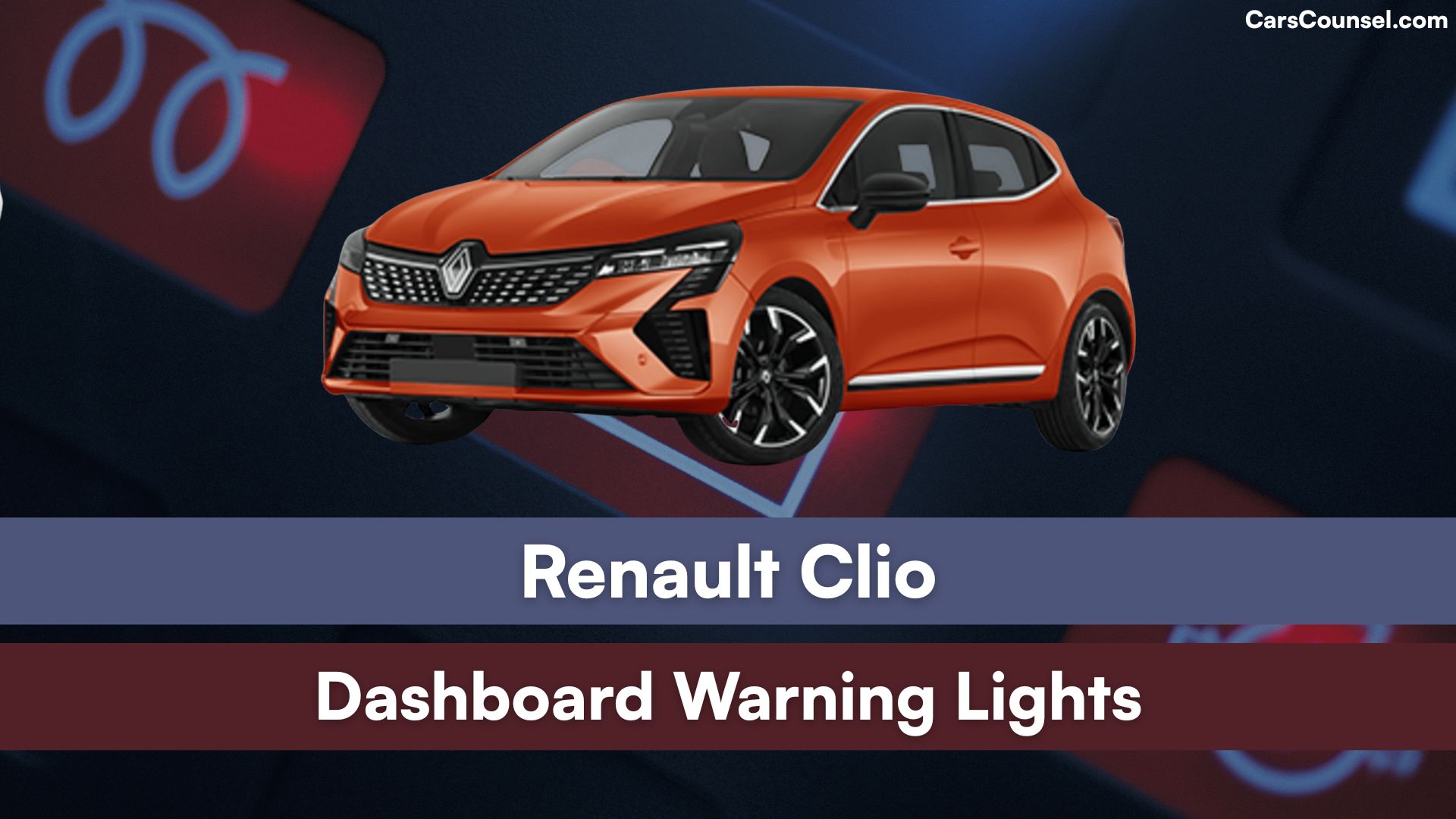
Quick Navigation
Red Warning Lights (Stop Immediately)
Engine Oil Pressure
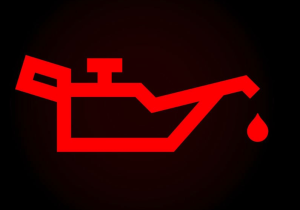
This light signals low oil pressure, which can cause engine damage from lack of lubrication. It often comes from low oil levels or a faulty pump. Stop the car right away, check the oil level, and do not drive until fixed; see a mechanic if needed.
Brake System Alert
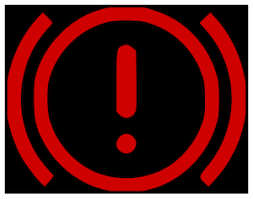
It indicates a problem with the brakes, like low fluid or a failure in the system. This can make stopping unsafe. Pull over safely, check brake fluid, and call for help without driving further.
Coolant Temperature
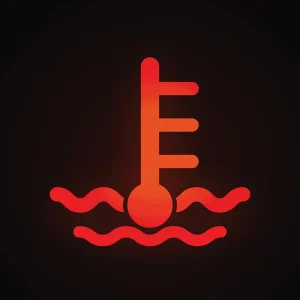
This shows the engine is overheating, possibly due to low coolant or a leak. Overheating can harm the engine. Stop immediately, let it cool, check coolant level, and get professional help.
Battery Charge
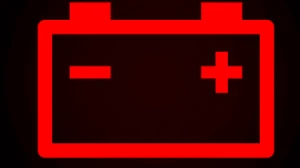
The light means the battery isn’t charging properly, often from a faulty alternator or loose wires. This can lead to the car stalling. Stop and have the charging system checked by a mechanic.
Airbag System
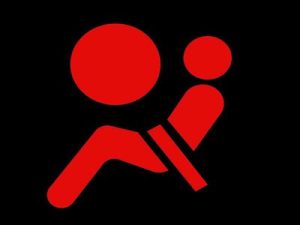
It warns of a fault in the airbag setup, which might stop airbags from working in a crash. Causes include bad sensors or wiring. Stop and visit a service center to fix it.
Power Steering Failure
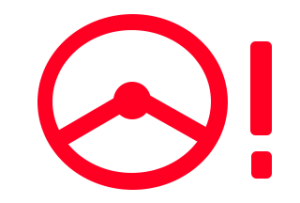
This indicates an issue with power steering, making the wheel hard to turn. It could be low fluid or a pump problem. Pull over safely and seek mechanic assistance before driving.
Seatbelt Reminder
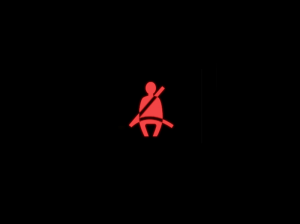
The light reminds you or passengers to buckle up, flashing if ignored. Not wearing a seatbelt risks injury. Stop and ensure everyone fastens seatbelts before continuing.
Door Ajar
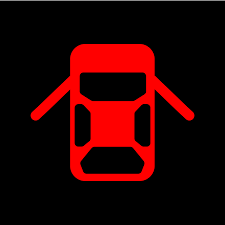
It signals a door is not fully closed, which can be unsafe at speed. An open door might fly open. Stop, check all doors, and secure them properly.
Brake Fluid Low
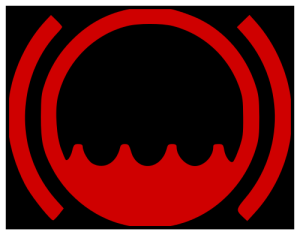
This shows low brake fluid, risking brake failure. It might come from a leak. Stop immediately, top up fluid if possible, and get it inspected.
Engine Overheating
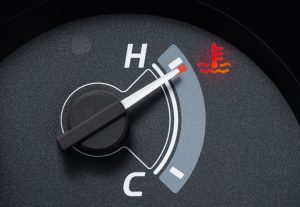
Similar to coolant, it points to high engine temperature from various causes like a bad thermostat. This can warp engine parts. Stop, cool down, and consult a mechanic.
Transmission Overheat
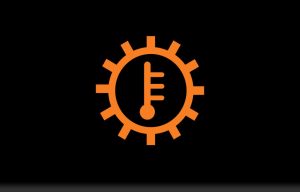
The light means the transmission is too hot, possibly from heavy use or low fluid. Overheating damages gears. Stop, let it cool, and have it checked.
Emergency Brake Engaged
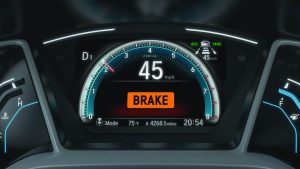
The light shows the parking brake is on while driving, which can overheat brakes. Pull over and release it fully.
Critical System Fault
A general red alert for severe issues like electrical failure. It demands immediate attention. Stop and diagnose with professional help.
Yellow/Amber Warning Lights (Action Required Soon)
ABS System
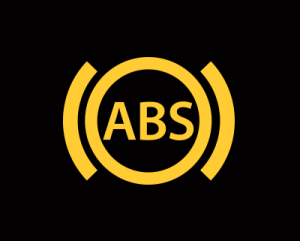
This light means the anti-lock brakes might not work, possibly from a sensor fault. Brakes still function but without anti-lock. Get it checked soon to restore safety.
Tyre Pressure Monitoring
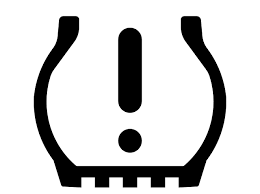
The light indicates low tyre pressure in one or more tyres, affecting handling. Could be a slow leak. Check and inflate tyres, reset the system if needed.
Glow Plug
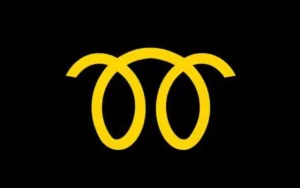
For diesel models, it shows glow plugs are heating. If it stays on, there might be a fault. Wait for it to go off before starting, or get it fixed.
ESP Stability Control
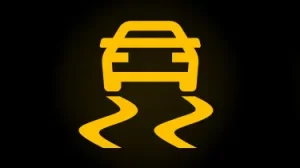
The light means electronic stability program is off or faulty, reducing traction help. Slippery roads become riskier. Turn it on or have it serviced.
Transmission Fault
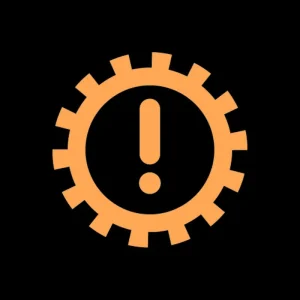
It signals a problem in the gearbox, like slipping. Performance drops. Drive carefully and visit a service center soon.
DPF Filter
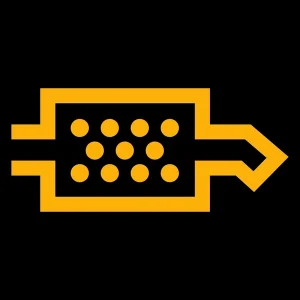
This warns the diesel particulate filter is clogged from short trips. It affects emissions. Drive at higher speeds to regenerate, or get it cleaned.
Check Engine
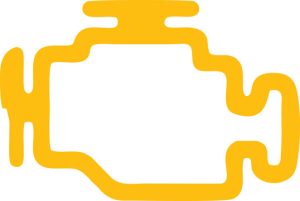
A general alert for engine issues, such as sensor faults. It reduces performance. Scan for codes and fix as needed.
Fuel Filter
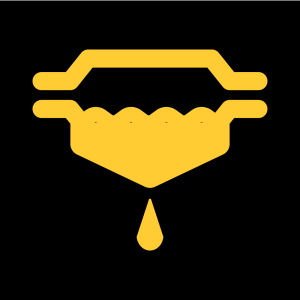
The light shows the fuel filter needs attention, possibly clogged. It can cause poor running. Replace the filter soon.
Eco Mode Inactive
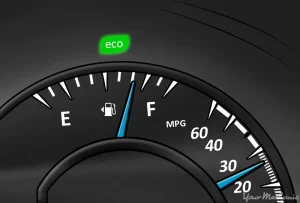
It alerts that eco mode is off, using more fuel. Turn it on for better efficiency if desired.
Green Lights (Information Only)
Headlights On
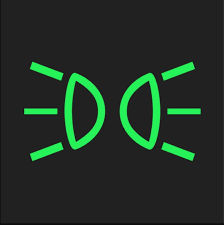
It indicates headlights are active for better visibility. Turn off when not needed to save battery.
Turn Signal
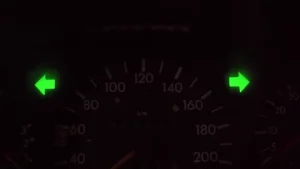
The light flashes when indicators are on, showing direction intent. It reminds you to turn them off after use.
Cruise Control
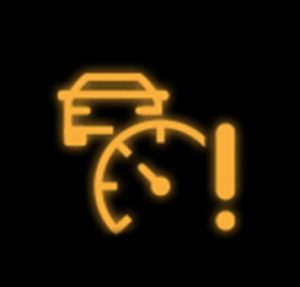
This shows cruise control is set, maintaining speed. Adjust as needed for driving conditions.
High Beam
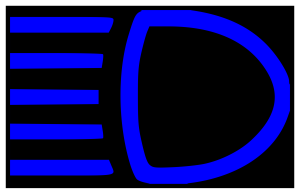
It means high beam lights are on, for dark roads. Dip them for oncoming traffic.
Dipped Beam
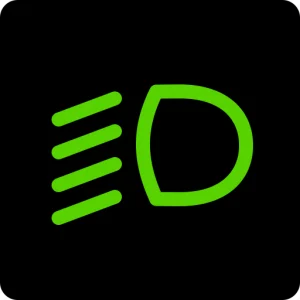
The light confirms low beam headlights are active. Use in normal night driving.
Front Fog Lights
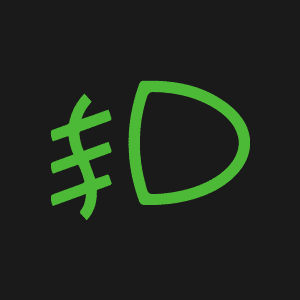
This indicates front fog lights are on, for poor visibility. Turn off in clear conditions.
Rear Fog Lights
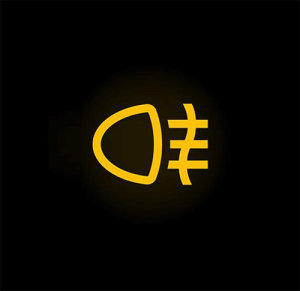
It shows rear fog lights are active, helping others see you. Use only in heavy fog.
Fuel Level Normal
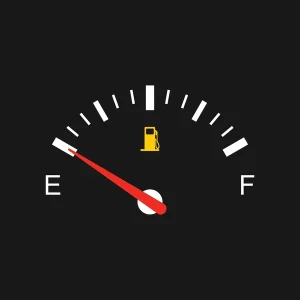
The light means fuel is at a safe level. Refuel when it changes.
Stop-Start Active
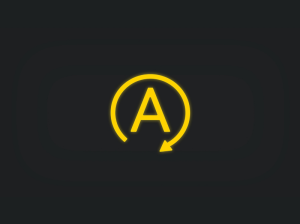
The light shows auto stop-start is working, saving fuel at stops. Overrides available if preferred.
When looking at Renault, make sure to check out our guides on models like the Renault Scenic and Grand Scenic, Renault Trafic, Renault Zoe, and Renault Master. Understanding dashboard warning lights is essential. Our expert reviews break down what each light means, highlighting common alerts for these models and what they could signal about underlying issues, so you’re never left guessing behind the wheel.

